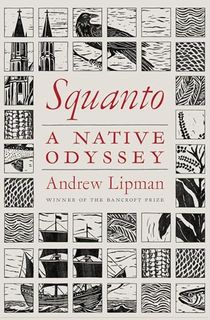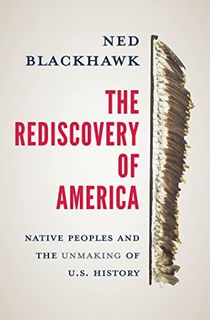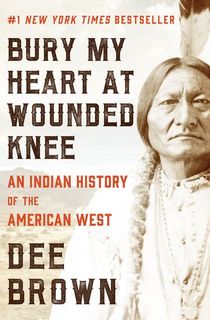Consisting of 574 federally recognized tribes, there are many distinct Native American cultures, each with their own unique experiences and histories. However, these unique stories often do not get the attention they deserve.
Native American histories have repeatedly been told from Eurocentric perspectives that minimize or deny the injustices so many Native Americans have endured. The full and complex histories of Native Americans are frequently misrepresented or omitted entirely in broader discussions of American history.
However, the rich histories of Indigenous peoples are not only fundamental to understanding the United States—from its origins, to its development, to its current state of affairs today—but are also fascinating in their own right.
The compelling and illuminating books below share history from the perspective of Native Americans. Reframing events and giving voice to the experiences of Indigenous peoples, these books offer a wealth of information and insight. They dispel myths, tell stories of active resistance, and detail thriving cultures. While the list below is far from comprehensive, these books span from the Atlantic to the Pacific and cover the course of centuries.

Squanto: A Native Odyssey
Contemporary Americans know Squanto as the friendly Native American who greeted the Mayflower pilgrims in English and made the first Thanksgiving possible with his diplomacy. He had learned the language when he was kidnapped by Englishmen some six years earlier and brought to Europe before making his way back to the Wampanoag-speaking town of Patuxet, where the majority of the residents had died from an epidemic during his absence.
There is even more to this unique and fascinating life than meets the eye. Prize-winning historian Andrew Lipman explores long-standing questions about how Squanto made his way home to North America, why he decided to help the pilgrims, his surprising deathbed conversion, and more in this refreshing new assessment.

The Rediscovery of America: Native Peoples and the Unmaking of U.S. History
This bestseller has garnered a number of awards, including the prestigious National Book Award, and was a finalist for the Los Angeles Times Book Award in History. Yale professor Ned Blackhawk’s ambitious work tackles 500 years of Native American history to retell the story of the United States, centering Indigenous people in the recounting of events instead of relegating them to the sidelines. This meticulously researched and long overdue reckoning “will become an indispensable text for a generation of researchers, educators and students” (BBC History Magazine).

Bury My Heart at Wounded Knee
In his perspective-altering book, Bury My Heart at Wounded Knee, Dee Brown brought the gripping, heart-breaking, and largely untold story of the American West to the forefront. Reexamining the history of the frontier from the perspective of Native Americans, Bury My Heart at Wounded Knee tells of the twisted treaties and violent clashes between the U.S. government and Native Americans.
Detailing the history of the Navajo, Sioux, Cheyenne, and Apache, among others, Brown takes an in-depth look at the Native experience of the Reconstruction era and the fin de siècle, culminating in the Battle of Wounded Knee. Sharing the heroic efforts of leaders like Geronimo, Crazy Horse, and Sitting Bull who fought to protect their people, land, and culture, Bury My Heart at Wounded Knee sheds new light on a vital period of history.

The Heartbeat of Wounded Knee: Native America from 1890 to the Present
David Treuer builds upon Dee Brown's famous work in his book, The Heartbeat of Wounded Knee. Treuer shares the ongoing history of Native Americans from the 1890s to the present day. The Heartbeat of Wounded Knee shares how Native Americans have adapted through trials and tragedies to preserve their culture, navigate channels of power, and pursue their own sovereignty. In a book that was a finalist for the 2019 National Book Award, named a best book of 2019 by The New York Times, Time magazine, The Washington Post, NPR, and others, and even made its way into President Obama's favorite books of 2019, David Treuer shares the very much still living history of Indigenous peoples.
If you are looking to learn more about David Treuer, his memoir Rez Life recounts his childhood growing up on Leech Lake Indian Reservation.

An Indigenous Peoples’ History of the United States
A winner of the 2015 American Book Award, An Indigenous People's History of the United States takes a comprehensive look back at the events of the past 400 years. From the early colonial period, to the presidency of Andrew Jackson, through Westward Expansion, Dunbar-Ortiz peals back the policies and practices that have underpinned the United States's actions toward Indigenous peoples. Reframing the narrative, Dunbar-Ortiz lays bare atrocities committed by the United States and shares stories of resistance by Indigenous peoples.

Killing Custer
Putting the Battle of Little Bighorn in a new context, James Welch exposes the depth and complexities of the 1876 clash infamously referred to as "Custer's Last Stand." In a book that is both historic and personal, Welch, whose parents were members of the Blackfeet and A'aninin tribes, reveals the toll of the battle on the Plains Indians. Diving into the history surrounding this pivotal moment, Welch breathes new meaning into a story so often characterized by myths and misconceptions.

Our History Is the Future
Tying the present and the past together, Nick Estes explains how the protests against the Dakota Access Pipeline found their foundations in past fights against violations of sovereignty. Drawing from many different examples, Estes traces Indigenous peoples' history of resistance. Through his detailed yet accessible writing, Estes explains how each example of resistance has informed the most significant Indigenous protest since the turn of the century.

Violence over the Land
Covering 200 years of history, Blackhawk chronicles the dynamic and entangled histories of the Great Basin. Centering his book on the experiences of Ute, Paiute, and Shoshone Indians, Blackhawk tells of the dramatic repercussions of European expansion, Spanish affairs, and Mexican independence. Marked by violence and a constant need to adapt, the history of imperialism in the American West has left a damaging and lasting legacy on the area's Indigenous people. In his award-winning book Violence over the Land, Blackhawk tells the history of the Great Basin as never before.

Aloha Betrayed
Though Native Hawaiians are recognized as distinct from Native Americans, they, too, have a unique history shaped by their interactions with the United States government. Aloha Betrayed gives voice to the history of Native Hawaiians. Bringing new light to the unique past of Hawai'i, Noenoe K. Silva uses Hawaiian language documents and primary sources to reveal how Hawaiians have fought to maintain their culture and nation. Her book includes startling revelations, like a petition, signed by 95% of the Indigenous population, objecting to an 1897 American annexation plan.

The Lumbee Indians
In a history deeply tied to that of the United States, the Lumbee Tribe of North Carolina has been witness to every major turning point in U.S. history. From the arrival of Europeans on the East Coast, to the outbreak of the Revolutionary War, to the hard-fought clashes of the Civil War and Reconstruction, Lumbees have been there for it all. In a book that dives into the history of the largest tribe in the Eastern portion of the United States, Malinda Maynor Lowery explains how the Lumbees have maintained their homeland, culture, and government throughout the tumultuous events of United States history, and how they continue to strive for justice today.

Warrior Nation
A leading Ojibwe historian and linguist, Anton Treuer dives deep into 400 years of the Minnesota nation's history. Incorporating oral histories from elders and tribe members, as well as materials from tribal political strategists, Treuer reveals how the the Red Lake Nation has maintained its land tenure through the centuries. In a sweeping history, Treuer not only adds depth to the history of Natives Americans in the United States, but speaks to the unique accomplishments of the Red Lake Ojibwe.
If you enjoy Treuer's work, you may also like his book The Assassination of Hole in the Day, which explores an Ojibwe leader's mysterious killing in the late 1860s.

Unsettling Truths
Unsettling Truths examines the history of settler and Native American relations from a new angle, focusing specifically on the ways in which church policy influenced the course of history in America. Early ideas from European churches helped to establish precedents and practices that have contributed to injustice throughout the Americas. Offering an in-depth look into these early church policies, Charles and Rah examine the "Doctrine of Discovery". They show the name to be misleading, the premise to be fundamentally wrong, as one cannot discover the land others already live upon, and explore the numerous and long lasting effects the original edicts have had over the course of generations.
This post is sponsored by Yale University Press. Thank you for supporting our partners, who make it possible for The Archive to continue publishing the history stories you love.











